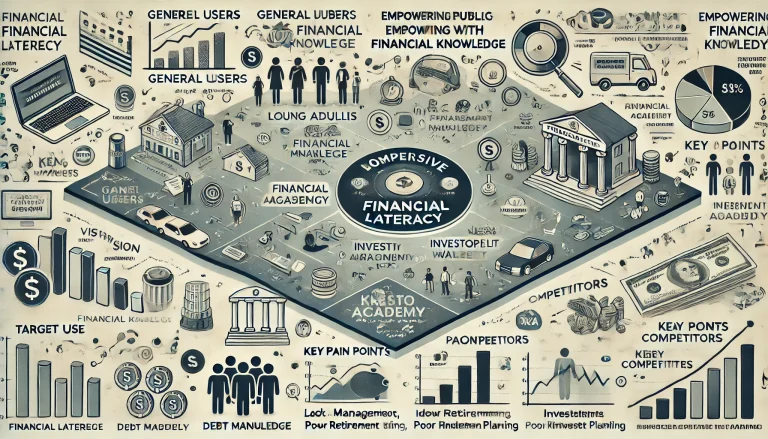Problem Statement
In the modern financial landscape, the vast amount of customer data available to financial firms presents a significant opportunity to enhance customer service, personalize product offerings, and improve operational efficiency. Data-driven insights can help firms understand customer behavior, predict needs, and tailor services in ways that were previously impossible. However, the use of this data also presents a considerable challenge, particularly in ensuring that it is handled ethically and responsibly.
The ethical use of customer data is increasingly under scrutiny, as concerns about privacy, consent, and potential misuse of data grow. Customers are becoming more aware of their data rights and are demanding greater transparency from the companies they engage with. At the same time, regulatory bodies are tightening the rules around data usage, imposing stricter penalties for breaches and unethical practices.
Financial firms must navigate these complex issues to maintain customer trust and avoid regulatory penalties. Data privacy is a critical concern, as the mishandling of sensitive information can lead to breaches, identity theft, and significant reputational damage. Firms must ensure that they have robust data protection measures in place to safeguard customer information and comply with regulations such as the General Data Protection Regulation (GDPR) and the California Consumer Privacy Act (CCPA).
Consent is another key issue. Customers must be fully informed about how their data will be used and must provide explicit consent before their data is collected and processed. This requires financial firms to implement transparent and user-friendly consent processes, allowing customers to easily understand and manage their data preferences.
The potential misuse of data is also a concern. While data-driven strategies can drive innovation and growth, there is a risk that data could be used in ways that exploit customers or unfairly target vulnerable groups. For example, data could be used to push high-risk financial products to customers who may not fully understand the risks involved. Financial firms must establish ethical guidelines for data use, ensuring that their data practices align with principles of fairness, transparency, and customer welfare.
To address these challenges, financial firms must adopt a comprehensive approach to data ethics. This includes implementing strong data governance frameworks, providing clear and transparent communication to customers, and fostering a culture of ethical data use within the organization. By doing so, firms can leverage the power of data to drive innovation while maintaining the trust and confidence of their customers.
Pain Points
- Data Privacy: Ensuring the protection of sensitive customer information and compliance with data protection regulations such as GDPR and CCPA.
- Customer Consent: Implementing transparent and user-friendly consent processes that allow customers to manage their data preferences easily.
- Potential Data Misuse: Preventing the exploitation of customer data for unfair targeting or pushing high-risk financial products to vulnerable customers.
- Ethical Data Use: Establishing guidelines and practices that ensure data is used in ways that are fair, transparent, and aligned with customer welfare.
- Regulatory Compliance: Navigating complex and evolving data protection regulations to avoid legal penalties and reputational damage.
- Maintaining Customer Trust: Building and maintaining customer trust by handling data responsibly and transparently.
- Data Governance: Implementing robust data governance frameworks that oversee the ethical collection, processing, and use of customer data.
- Balancing Innovation with Privacy: Leveraging data to drive innovation and enhance services while ensuring that privacy and ethical standards are upheld.
- Transparency in Data Practices: Providing clear communication to customers about how their data is used, stored, and protected.
- Cultural Shift towards Data Ethics: Fostering a culture within the organization that prioritizes ethical data use and respects customer rights.

Future Vision
Our platform envisions a future where financial firms can harness the power of customer data to drive innovation and enhance customer experiences while upholding the highest standards of data ethics and privacy. By implementing strong data governance frameworks, fostering a culture of ethical data use, and prioritizing transparency and customer consent, firms can build trust and maintain compliance with evolving regulatory requirements.
A key focus will be on data privacy. The platform will support financial firms in developing and implementing robust data protection measures that safeguard sensitive customer information. This includes encryption technologies, secure data storage solutions, and regular audits to ensure compliance with data protection regulations such as GDPR and CCPA.
Customer consent will also be a priority. The platform will provide tools and resources to help firms create transparent and user-friendly consent processes. These processes will allow customers to easily understand how their data will be used and give them control over their data preferences. By making consent a central part of the customer experience, firms can build trust and demonstrate their commitment to ethical data use.
Ethical data use will be at the forefront of the platform’s approach. Financial firms will be guided in establishing ethical guidelines for data collection, processing, and usage. These guidelines will ensure that data is used in ways that are fair, transparent, and aligned with the best interests of the customer. Firms will be encouraged to avoid practices that exploit customer data or target vulnerable groups with high-risk financial products.
Transparency will be another key consideration. The platform will support firms in providing clear and accessible communication to customers about their data practices. This includes detailing how data is collected, stored, and used, as well as providing customers with easy access to their data and the ability to manage their data preferences. By being transparent about their data practices, firms can strengthen customer trust and build long-term relationships.
Balancing innovation with privacy will be essential for the platform. Firms will be encouraged to leverage data-driven insights to enhance customer experiences and develop new products and services, while ensuring that these innovations do not compromise customer privacy or ethical standards. This includes exploring new technologies and strategies that prioritize both innovation and privacy, such as privacy-preserving data analytics.
Cultural change within organizations will be a crucial element of the platform’s strategy. Firms will be supported in fostering a culture that prioritizes data ethics and respects customer rights. This includes training employees on the importance of ethical data use, establishing clear ethical guidelines, and creating accountability mechanisms to ensure that these guidelines are followed.
By addressing these challenges and prioritizing ethical data use, financial firms can leverage customer data to drive innovation and growth while maintaining trust, compliance, and a strong ethical foundation. This approach will not only enhance customer satisfaction but also position firms as leaders in responsible and ethical data practices.
Use Cases
- Data Privacy Solutions: Implementing encryption technologies, secure data storage, and regular audits to protect sensitive customer information.
- Transparent Consent Processes: Developing user-friendly consent processes that allow customers to easily manage their data preferences and understand how their data is used.
- Ethical Data Guidelines: Establishing guidelines that ensure data is used in ways that are fair, transparent, and aligned with customer welfare.
- Regulatory Compliance Tools: Implementing tools that help firms navigate complex data protection regulations and maintain compliance.
- Customer Trust-Building Initiatives: Developing strategies to build and maintain customer trust through responsible data practices and transparent communication.
- Data Governance Frameworks: Creating robust data governance frameworks that oversee the ethical collection, processing, and use of customer data.
- Balancing Innovation and Privacy: Leveraging data-driven insights to enhance services while ensuring that privacy and ethical standards are upheld.
- Transparency and Communication: Providing clear communication to customers about data practices, including how data is collected, stored, and used.
- Cultural Shift towards Data Ethics: Fostering a culture within the organization that prioritizes ethical data use and respects customer rights.
- Privacy-Preserving Technologies: Exploring new technologies that allow firms to innovate while preserving customer privacy, such as privacy-preserving data analytics.
Target Users and Stakeholders
- User: Financial Data Analysts, Compliance Officers, Data Privacy Officers, IT Security Teams, Corporate Ethics Officers, and Customer Relations Managers
- Age Group: 30-60 years
- Gender: M/F
- Usage Pattern: Regular usage for developing and implementing ethical data practices, ensuring compliance with regulations, and maintaining customer trust in the financial industry
- Benefit: Enhanced data protection, improved customer trust, and successful navigation of complex regulatory landscapes while leveraging data for innovation
- Stakeholders:
- Financial Firms: Banks, investment companies, and other financial institutions that collect, process, and use customer data.
- Customers: Individuals whose data is collected and used by financial firms, with a growing concern for privacy and ethical data use.
- Regulatory Bodies: Agencies responsible for enforcing data protection regulations and ensuring that financial firms comply with legal requirements.
- Technology Providers: Companies offering data protection, encryption, and privacy-preserving technologies to the financial industry.
- Ethics and Compliance Organizations: Groups advocating for ethical data practices and responsible data governance in the financial sector.
Key Competition
- JPMorgan Chase: Known for its strong data governance frameworks and commitment to data privacy and security in the financial industry.
- Goldman Sachs: Invests in advanced data protection measures and transparent customer consent processes to maintain trust and comply with regulations.
- Citigroup: Focuses on ethical data use, balancing innovation with privacy, and ensuring compliance with data protection regulations.
- Wells Fargo: Implements customer trust-building initiatives through responsible data practices and clear communication about data use.
- Bank of America: Prioritizes data ethics and transparency, fostering a culture of ethical data use within the organization.
Products/Services
- JPMorgan Data Governance Solutions: Implementing robust data governance frameworks that oversee the ethical collection, processing, and use of customer data.
- Goldman Sachs Data Privacy Measures: Developing and implementing advanced data protection measures, including encryption and secure data storage.
- Wells Fargo Trust-Building Initiatives: Developing strategies to build and maintain customer trust through responsible data practices and transparent communication.
- Bank of America Data Ethics Training: Fostering a culture of ethical data use through employee training, clear ethical guidelines, and accountability mechanisms.
Active Startups
- DataGuard: Specializes in data privacy solutions, including encryption technologies and secure data storage, for financial firms.
- ConsentFlow: Focuses on developing transparent and user-friendly consent processes that help customers manage their data preferences.
- EthicalData: Provides ethical data guidelines and tools for financial firms to ensure fair, transparent, and responsible data use.
- RegComply: Offers regulatory compliance tools that help financial firms navigate complex data protection regulations and maintain compliance.
- TrustBank: Innovates in customer trust-building initiatives through responsible data practices and transparent communication strategies.
- DataGovern: Develops robust data governance frameworks that oversee the ethical collection, processing, and use of customer data.
- InnovaPrivacy: Focuses on balancing innovation with privacy, offering privacy-preserving technologies that allow firms to innovate while protecting customer data.
- ClearComms: Provides tools and resources for financial firms to communicate clearly with customers about data practices and build trust.
- EthicShift: Fosters a culture of ethical data use within financial firms through training, guidelines, and accountability mechanisms.
- SecureFinance: Specializes in privacy-preserving technologies, such as privacy-preserving data analytics, for the financial industry.
Ongoing Work in Related Areas
- Data Privacy Research: Exploring new methods and technologies for protecting sensitive customer information and ensuring compliance with data protection regulations.
- Consent Management Innovations: Developing new tools and processes for transparent and user-friendly consent management in the financial industry.
- Ethical Data Use Guidelines: Researching best practices for establishing ethical data guidelines that ensure fair, transparent, and responsible data use.
- Regulatory Compliance Tools: Innovating in the development of tools that help financial firms navigate complex data protection regulations and maintain compliance.
- Customer Trust-Building Strategies: Exploring new approaches to building and maintaining customer trust through responsible data practices and transparent communication.
- Data Governance Frameworks: Developing robust data governance frameworks that oversee the ethical collection, processing, and use of customer data.
- Balancing Innovation with Privacy: Researching new technologies and strategies that allow financial firms to innovate while preserving customer privacy.
- Transparency and Communication Tools: Creating tools and resources that help financial firms communicate clearly with customers about data practices.
- Cultural Shift towards Data Ethics: Fostering a culture within financial firms that prioritizes ethical data use and respects customer rights.
- Privacy-Preserving Technologies: Innovating in privacy-preserving technologies, such as privacy-preserving data analytics, for the financial industry.
Recent Investment
- DataGuard: $30M in Series A funding led by data privacy-focused venture capital firms, January 2021.
- ConsentFlow: $25M in Seed funding from financial technology investors, March 2020.
- EthicalData: $20M in Series B funding from ethical investment firms, June 2021.
- RegComply: $15M in Series A funding from regulatory compliance-focused investors, September 2020.
- TrustBank: $12M in Seed funding from customer trust-focused investment firms, December 2020.
Market Maturity
The market for ethical data practices and privacy solutions in the financial industry is rapidly maturing as firms recognize the importance of balancing innovation with privacy and maintaining compliance with data protection regulations. Companies like JPMorgan Chase, Goldman Sachs, and Citigroup are leading the way with robust data governance frameworks, advanced data protection measures, and ethical data guidelines. Startups such as DataGuard, ConsentFlow, and EthicalData are driving innovation in data privacy, consent management, and ethical data use. Significant investments in data privacy research, consent management innovations, and ethical data use guidelines are transforming the financial industry, enabling firms to leverage customer data while maintaining trust, compliance, and a strong ethical foundation. As the market continues to evolve, we expect to see more integrated and advanced solutions that enhance data protection, build customer trust, and position financial firms as leaders in responsible and ethical data practices.
Summary
The vast amount of customer data available to financial firms presents both an opportunity and a challenge. While data-driven insights can enhance customer service and product offerings, there is a growing concern about the ethical use of this data. Firms must navigate issues such as data privacy, consent, and the potential misuse of data. Ensuring that data is used ethically and in a way that respects customer rights is crucial for maintaining trust and avoiding regulatory penalties. Our proposed platform leverages data privacy solutions, transparent consent processes, ethical data guidelines, regulatory compliance tools, customer trust-building initiatives, data governance frameworks, balancing innovation with privacy, transparency and communication tools, cultural shifts towards data ethics, and privacy-preserving technologies to address these challenges. Key pain points include data privacy, customer consent, potential data misuse, ethical data use, regulatory compliance, maintaining customer trust, data governance, balancing innovation with privacy, transparency in data practices, and fostering a culture of data ethics.
Target users include financial data analysts, compliance officers, data privacy officers, IT security teams, corporate ethics officers, and customer relations managers, with stakeholders encompassing financial firms, customers, regulatory bodies, technology providers, and ethics and compliance organizations. Key competitors like JPMorgan Chase, Goldman Sachs, Citigroup, Wells Fargo, and Bank of America offer various data governance frameworks, data privacy measures, ethical data guidelines, trust-building initiatives, and data ethics training, while startups such as DataGuard, ConsentFlow, and EthicalData are driving innovation in data privacy, consent management, and ethical data use. Recent investments highlight significant interest and growth potential in platforms addressing the challenges of ethical data practices and privacy solutions in the financial industry.
By addressing these challenges and prioritizing ethical data use, financial firms can leverage customer data to drive innovation and growth while maintaining trust, compliance, and a strong ethical foundation. This approach will not only enhance customer satisfaction but also position firms as leaders in responsible and ethical data practices.



